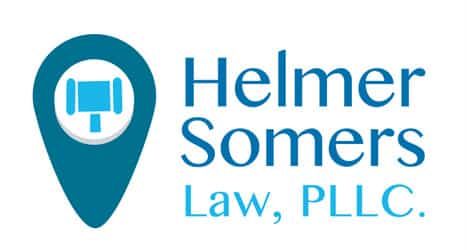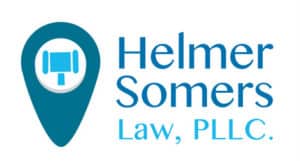
Types of Bankruptcy for Individuals
When considering bankruptcy, you must determine which type is most suitable for your circumstances. The two most common types of bankruptcy for individuals in the United States are Chapter 7 and Chapter 13.
Chapter 7 Bankruptcy: Liquidation
Chapter 7 bankruptcy, also known as liquidation bankruptcy, offers a relatively quicker process to eliminate most of your unsecured debts. In this type of bankruptcy, a trustee may sell some of your non-exempt assets to repay your creditors. Chapter 7 bankruptcy is an option for those with little or no assets and who pass the means test, which assesses your income eligibility for Chapter 7.
Chapter 13 Bankruptcy: Repayment Plan
Chapter 13 bankruptcy allows individuals with regular income to create a repayment plan to pay off their debts over a three to five-year period. This type of bankruptcy is suitable for those who want to catch up on missed payments, particularly on assets they want to keep, such as a home or car.
It’s crucial to consult with an experienced bankruptcy attorney to determine which type of bankruptcy is most appropriate for your unique situation.
Exploring Alternatives to Bankruptcy
Before filing for bankruptcy, it’s essential to consider alternative options that may help you resolve your financial difficulties without going through the bankruptcy process.
Credit Counseling
Credit counseling is a valuable resource that can provide guidance on managing your debts and developing a plan to repay them. Before filing for bankruptcy, you must complete credit counseling from an approved credit counseling agency. The U.S. Department of Justice maintains a list of approved credit counseling agencies, which you can access through their website.
Government Relief Programs
During challenging times, such as the COVID-19 pandemic, government relief programs may provide temporary financial assistance. These programs, like mortgage forbearance and foreclosure suspensions, can offer relief and help you stabilize your financial situation. It’s crucial to explore these options before proceeding with bankruptcy.
Loan from a 401(k) Plan
While generally considered a last resort, borrowing from your 401(k) plan can provide temporary relief to address immediate financial needs. However, it is important to understand the potential long-term consequences and risks associated with this decision before proceeding.
Avoid Incurring New Debt or Draining Retirement Accounts
In the months leading up to filing for bankruptcy, it is crucial to refrain from accumulating additional debt. Incurring new debt during this period can lead to complications in your bankruptcy case and may even be considered bankruptcy fraud.
Similarly, avoid draining your retirement accounts to pay off debts before filing for bankruptcy. Most retirement funds are protected in bankruptcy, and filing for bankruptcy may ultimately discharge much of the debt you are attempting to repay.
Understand Which Debts Can and Cannot Be Discharged
Bankruptcy provides relief for various types of debts, but it’s important to understand that not all debts are dischargeable. Certain debts are considered non-dischargeable by law and will remain your responsibility even after filing for bankruptcy.
Non-Dischargeable Debts
Some common examples of non-dischargeable debts include child support, alimony, certain tax debts, student loans (unless you can prove undue hardship), and debts resulting from fraudulent activities. It’s crucial to consult with an attorney to determine which of your debts may be discharged and which will remain your responsibility.
Secured and Unsecured Debts
Bankruptcy treats secured and unsecured debts differently. Secured debts are tied to collateral, such as a mortgage or car loan, and the creditor retains the right to repossess the collateral if you default on the loan. Unsecured debts, such as credit card balances and medical bills, are not tied to specific collateral.
In bankruptcy, secured creditors can still enforce their rights to the collateral, while unsecured debts may be discharged. Understanding the distinction between these types of debts is essential when evaluating the impact of bankruptcy on your financial situation.
The Impact on Your Property: Exempt vs. Non-Exempt
When filing for bankruptcy, it’s important to understand the impact on your property. Bankruptcy law allows you to keep certain exempt property, while non-exempt property may be sold by the trustee to repay your creditors.
Exempt Property
Exempt property refers to assets that are protected from liquidation during bankruptcy. Each state has its own exemption laws that determine which assets are exempt. Examples of exempt property may include a portion of your home equity, personal belongings, retirement accounts, and more. It’s crucial to consult your state’s exemption laws or seek advice from an attorney to understand which of your assets may qualify for exemption.
Non-Exempt Property
Non-exempt property refers to assets that are not protected by bankruptcy exemptions. The trustee may sell these assets to repay your creditors. It’s important to note that the value of non-exempt property can vary depending on the bankruptcy type you file. Chapter 7 bankruptcy poses a higher risk of losing non-exempt property, while Chapter 13 bankruptcy allows you to keep all your property as long as you repay the value of the non-exempt assets through a repayment plan.
The Length and Complexity of the Bankruptcy Process
Filing for bankruptcy is not a quick fix for your financial problems. The length and complexity of the bankruptcy process can vary depending on the type of bankruptcy you file.
Chapter 7 Bankruptcy Timeline
Chapter 7 bankruptcies generally take four to six months to complete. This timeline includes filing the necessary paperwork, attending the meeting of creditors, and receiving a discharge of your debts.
Chapter 13 Bankruptcy Timeline
Chapter 13 bankruptcies typically span three to five years. During this time, you must adhere to the repayment plan approved by the court. Once you complete the plan, the remaining eligible debts are discharged.
The Importance of Hiring an Experienced Bankruptcy Attorney
Navigating the bankruptcy process can be complex, and it’s highly recommended to seek the guidance of an experienced bankruptcy attorney. While you have the option to file for bankruptcy without an attorney, the success rate for self-filed cases is generally lower.
An attorney can help you understand the intricacies of bankruptcy law, guide you through the paperwork, and represent your best interests throughout the process. It’s important to note that attorney fees can vary based on the complexity of your case and your location.
Complete Honesty in Bankruptcy Filings
Honesty is paramount when filing for bankruptcy. You must disclose all relevant information regarding your income, assets, and debts. Failing to provide accurate and complete information can result in severe consequences, including the dismissal of your case, criminal charges, or the loss of property.
Bankruptcy forms and schedules are detailed and require careful completion. Working with an attorney can help ensure that your filings are accurate and comply with legal requirements.
The Public Nature of Bankruptcy Proceedings
Bankruptcy filings are public records, which means your financial affairs will be accessible to the public. Forms, schedules, and other documentation submitted during the bankruptcy process can be viewed by anyone interested. Additionally, you will be required to attend a meeting of creditors, where a bankruptcy trustee will ask you questions about your financial situation in a public forum.
It’s important to understand that bankruptcy is a legal process, and confidentiality cannot be guaranteed. However, specific arrangements have been made to accommodate virtual meetings and maintain privacy during the COVID-19 pandemic.
The Long-Term Impact on Your Credit
Filing for bankruptcy can have long-term effects on your credit. The bankruptcy filing will remain on your credit report for up to ten years, affecting your ability to secure new loans or credit cards. However, it’s important to remember that as time passes and you demonstrate responsible financial behavior, the impact of bankruptcy on your credit will diminish.
It’s crucial to develop a strategy to rebuild your credit after bankruptcy. Responsible financial management, such as timely bill payments and the careful use of credit, can help you improve your creditworthiness over time.
Filing for bankruptcy is a significant decision that should not be taken lightly. Understanding the intricacies of the process, exploring alternatives, and seeking professional guidance are vital steps in navigating this complex legal journey. By being well-informed and making informed decisions, you can regain control of your financial future and work towards a fresh start. Always consult with a qualified attorney to assess your specific situation and determine the best course of action.
Contact Us (859-371-0730) for a Consultation Today
—
 About Helmer Somers Law
About Helmer Somers Law
Helmer Somers Law helps individuals and businesses navigate the complex system of rules that accompany all legal situations. We are licensed to practice in both Kentucky and Ohio and offers flexible, affordable payment terms for our services. We welcome the opportunity to earn your trust and become your lawyer for life! It’s a fact of life in the modern world. There comes a time for virtually every adult American when the services of a competent, dedicated lawyer are required. Circumstances such as divorce, bankruptcy, estate planning or an income tax audit demand that your rights be protected, and your long-term interests advocated for with diligence and perseverance. When you call Helmer & Somers Law, you can rest assured that they will be.

 About Helmer Somers Law
About Helmer Somers Law